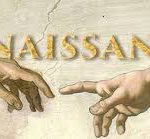In 2025, Greece is witnessing a vibrant cultural renaissance that blends its ancient traditions with modern innovation. Known worldwide as the cradle of Western civilization, Greece is leveraging its history, art, and heritage to create new opportunities for growth and global influence. This cultural revival is not just about preserving the past—it is about reinterpreting traditions in ways that resonate with younger generations and international audiences.
Museums and archaeological sites remain at the heart of Greece’s cultural identity. However, in recent years, digital tools such as virtual reality tours and AI-driven exhibits have transformed how visitors experience ancient landmarks. The Acropolis, for example, now offers augmented reality experiences where visitors can see reconstructions of temples as they originally stood. These innovations make heritage more accessible and engaging, attracting younger audiences while preserving the authenticity of the sites.
Greek cinema, theater, and music are also thriving. Independent filmmakers are gaining international recognition for their bold storytelling, often tackling themes of identity, migration, and social change. Greek music festivals, combining traditional folk with contemporary electronic beats, are drawing global crowds. This fusion highlights Greece’s ability to honor its roots while innovating in cultural production.
Education is playing a major role in the cultural renaissance. Universities and cultural institutes are offering programs that combine classical studies with digital arts and cultural management. These initiatives aim to equip young Greeks with the skills to preserve heritage while building careers in creative industries. This strategy also supports Greece’s economic diversification by developing the cultural sector as a driver of growth.
Tourism, a cornerstone of the Greek economy, is being redefined through cultural experiences. Beyond sun and sea tourism, visitors are now seeking immersive cultural journeys—learning Greek cooking, participating in village festivals, or joining archaeological digs. This experiential approach is spreading wealth across regions, ensuring that rural communities also benefit from cultural tourism.
Still, challenges persist. Cultural funding remains limited, and smaller institutions often struggle to compete with well-funded national projects. Moreover, debates about cultural ownership and the return of artifacts, such as the Parthenon Marbles, remain politically sensitive. Greece’s government has intensified diplomatic efforts to bring back cultural treasures housed abroad, framing it as a matter of justice and heritage preservation.
At the same time, globalization presents both opportunities and risks. While global interest in Greek culture is high, there are concerns that commercialization could dilute authenticity. Striking a balance between accessibility and preservation remains a delicate task for cultural policymakers.
FAQs
Q1: What is driving Greece’s cultural renaissance in 2025?
A1: A mix of digital innovation, global tourism, creative industries, and educational programs is fueling the revival of Greek culture.
Q2: How are museums and heritage sites adapting?
A2: Many are incorporating VR and AR technology, offering interactive experiences that bring history to life for modern audiences.
Q3: Is Greek cinema gaining global attention?
A3: Yes, Greek filmmakers are increasingly recognized at international festivals for their unique storytelling approaches.
Q4: How is cultural tourism changing?
A4: Visitors are now participating in immersive experiences like local festivals, cooking classes, and archaeological projects.
Q5: What are the challenges of this renaissance?
A5: Limited funding, cultural ownership disputes, and the risks of over-commercialization remain key concerns.
Conclusion
Greece’s cultural renaissance in 2025 is proof that tradition and modernity can coexist harmoniously. By embracing technology, supporting creative industries, and reimagining tourism, Greece is transforming its heritage into a dynamic source of growth and identity. Challenges remain, but the cultural revival is strengthening Greece’s global reputation and empowering a new generation to take pride in their roots while shaping the future.











